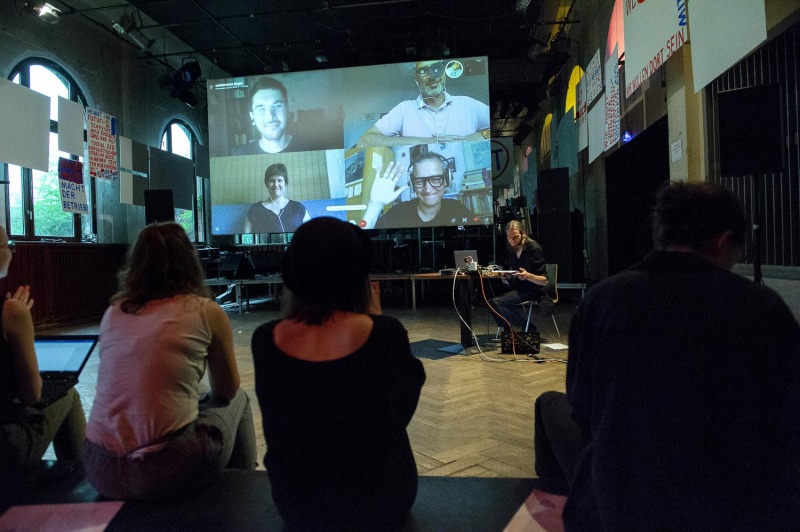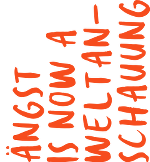
Mit:
Anja Golob, Slowenien
E.L. Karhu, Finnland
Jazra Khaleed, Griechenland
Jeffrey McDaniel, USA
Mati Shemoelof, Israel
Kinga Tóth aus Ungarn war leider krank
It’s about the persons who writes, not the literature. (Jazra Khaleed) One thing we can do when we write is not succumb to fear. (Anja Golob) In Israel the politics are always trying to stop the culture. The Israel Government is supporting things like dance but not poetry. (Mati Shemoelof) We must not forget what we are good at when we are writing. The stealing of language, emptying of the forms of language is everyhwere. But that is our business as writers: making use of language, this is where we get in. (Anja Golob) When we started our magazine here in Athens, we discovered there was no other place for this writing. We created this platform in order to have the people published who had ideas we wanted to hear. (Jazra Khaleed) The political langue of the right wing is very strong. There is a certain kind of schizophrenia in US politics. (Jeffrey McDaniel) Internationally, northern, scandinavian countries are seen as very democratic and progressive and thus no-one takes a look at these countries, but we have had the facists in government already for 12 years. (E. L. Karhu) Writing poetry can convey ideas in an easy manner. You only need a pen and a piece of paper. People started to write poetry as part of the politcal struggle, along with the demonstrations. (Jazra Khaleed) Speaking out publicly and writing literature is a good combination. One of the most important issues is how to break the bubble by speaking out. We have to talk to people we normally don’t talk to. I need people who are opposite to what I believe to have a debate. (Anja Golob) We created a space for poetry, literature and performance here in Israel, which is really rare here. (Mati Shemoelof) In Slovenia, in the past year it became very modern to say that literature is not useful but rather redundant, a waste of time, should be abolished. Writers are called parasites. So this makes it seem that literature has no power at all. But actually we need to confess to ourselves and insist that it is not an easy thing. It is a fucking complicated thing to set up your mind and work on literature. (Anja Golob) Is there tension between artists and activists? I have the feeling that activists often don’t wanna work together with artists. (E.L. Karhu) Also in Israel there is the problem: one language, one people, one country. (Mati Shemoelof) Important is the content, not the medium. People can not relate to the art if there is not content. For me, the first step is the content. Then I try to find the right medium. (Jazra Khaleed) In our time there is no more discipline. Only the first layer comes through, but literature has many layers. And you need to use your mind and think so that it does not get broken. We need to educate ourselves how to read, how to think about literature. This is getting out of the system. If you have the free time and have the time to be lazy, fill it with books! (Anja Golob) When I moved from Israel to Berlin I wasn’t able to write about Israel anymore: If you are out of the country, you are out of the discourse. (Mati Shemoelof)
Protokoll: Angie Martiens, Juliane Noßack, Fabian Thomas
Collage: Fabian Thomas
